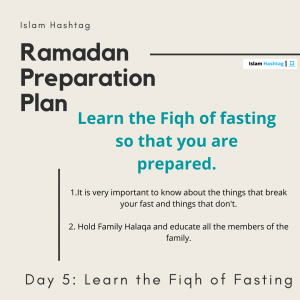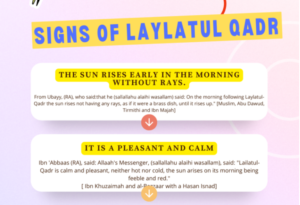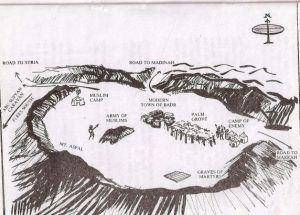Before Ramadan starts, it is beneficial to revise the Fiqh of fasting so that we are Prepared before Ramadan.
We can also hold a Family halaqa in our home and educate other family members.

Here I discuss some Fiqh of Ramadan Fast very briefly. This is taken from book- Ascent of Felicity and my Own class notes on Fiqh of Fasting.
Actions of one who is fasting are divided into four categories:
- Those that require a makeup as well as expiation,(Qada and Kaffara)
- Those that require a makeup without expiation, (Only Qada)
- Those that require nothing [and are not disliked],
- Those that require nothing yet are disliked.
What is Qada and Kaffara?
Things that break one’s fast are of two kinds. Some make only qaḍā necessary whilst others make both
qaḍā and kaffāra necessary.
Qaḍā: To keep a single fast in place of the one that is broken.
Kaffāra: A penalty of observing sixty continuous fasts followed by the missed one.
If a person is unable to keep these 60 fasts for some valid reason, e.g. continuous sickness, then one has the
option of choosing from one of the following four options:
- Feed sixty poor people to their fill for two meals, or
- Feed one poor person two meals a day for sixty days; or
- Give 60 poor persons 3 ½ Ibs. (approx. l.6 kg of wheat or its value in cash or food grains)
- Give to one poor person not less than 3 ½ Ibs. of wheat, rice or food grains, etc. or its value or cash
for sixty days
Those that require a makeup as well as expiation(Qasda and Kaffara)
If one eats or drinks something of nutritional value [i.e., something customarily eaten] or something for medicinal purposes; or if one has sexual intercourse in either of the two passages [front or rear]; on purpose, then he must make
up the fast as well as perform expiation, which is to free a slave; if he does not have one, he must fast two consecutive months; if he is genuinely unable, then he must feed sixty poor people, half Sa'[ 2.2 kg] of wheat [or give its equivalent monetary value] to each person.
If, however, he does one of the above-namely, if he eats, drinks, or has intercourse-out of forgetfulness,then he neither has to make up the fast nor perform expiation.
Those that require a makeup without expiation(Qada without Kaffara)
- Use of a suppository;
- Something not normally eaten [nor used for medicinal purposes], like dirt, reaching the body cavity;
- Accidentally swallowing water while rinsing the mouth;
- Being forced to break one’s fast;
- Eating [even if intentionally], in the daytime, for a fast in which the person did not make the intention before fajr;
- Ejaculation due to touching or kissing
- Someone pouring water into the body cavity of a sleeping person i.e., the sleeping person must make up the day without expiation];
- Self-induced vomiting ‘ [a mouthful or more].
- Water accidentally passing down the throat whilst gargling, even though conscious of one’s fasting
- To continue eating and drinking after dawn or to break the fast before the sunset sets in, due to a cloudy sky or a faulty watch etc., and then realizing one’s mistake.
- For a women to begin her menses during the fast.
Those that require nothing and are not disliked-Does not break the fast
- Blood cupping (hijama) or drawing blood, as long as it does not weaken him;
- Using the toothstick (siwak), even if used at the end of the day [rather, it is asunna];
- Rinsing the mouth or the nose [without any water proceeding down the throat];
- Placing a wet garment on one’s body [or takinga bath] due to heat.
- Applying of kohl (surma) into the eyes.
- Taking a bath to keep cool.
- Rubbing oil onto the body or hair
Those that require nothing yet are disliked-Disliked Acts
If one tastes some food or chews on it [without swallowing], without a valid excuse; or if one kisses [his spouse] while not feeling secure [from ejaculation or intercourse], it is disliked. If, however, one feels secure from engaging in intercourse or from ejaculation due to the kissing, it is not disliked.
The following actions are recommended (mustababb) for the one fasting:
- To have the pre-dawn meal (sul;ur) [due to the blessing therein, even if only a sip of water];
- To delay it [until shortly before fajr, yet while being certain not to swallow anything after fajr enters];
- To hasten in breaking one’s fast, unless it is a cloudy day [i.e., one must be certain that maghrib has indeed entered].
The following actions during the day necessitate withholding (imsak) from anything that would vitiate the fast, for the remainder of that day [i.e., it is mandatory (wajib) to do so]: i.e He should act like a fasting Person-The first three cases require a makeup, as opposed to the last two.
- If one breaks the fast [whether accidental, on purpose, or under coercion];
- If a traveller arrives to his place of residence, and was not fasting on his journey [since if he were fasting, then he must remain fasting .
- If a woman in menstruation or postnatal bleeding becomes pure;
- If a non-Muslim embraces Islam;
- Or if a child becomes an adult [by puberty or by age].
EXEMPTIONS FROM FASTING
The following people are exempted from fasting in Ramadan-
- A sick person who fears that the illness will worsen;
- A pregnant woman or nursing woman, with the condition for each
- that she have a legitimate fear for the baby or for herself;
- One who is undergoing severe thirst from which he fears death;
- A traveler who is undertaking a journey of more than 48 miles and does not intend staying more than 14 days at his destination. According to the Shāfiʿī school, for a person to be considered a traveler, the distance to be traveled has to be at least 50 miles and the intention must not be to stay at the destination for four days or more. However, it is better for a traveler to fast in Ramaḍān than make them up later, provided the journey is not a tiresome one.
- A women in menses or postnatal bleeding. They should make them up later, preferably before the next Ramaḍān.
Fidya (Expiation) for Not Being Able to Fast
A very old person who does not have the strength to fast or a very sickly or diseased person who has no
hope of recovering after Ramaḍān should pay an expiation for each fast missed in Ramaḍān.
The fidya for a fast is similar to that of a missed farḍ or wājib prayer: 3½ lbs = 1.6 kg of wheat, or 7 lbs =
3.2 kg of barley, or the equivalent of the above in cash or kind.
If the person recovers after Ramaḍān the missed fasts would; have to made up and the expiation paid
would be considered ṣadaqa. A few other rulings should be considered:
No one is allowed to fast for another (sick or fit) person.
Children should be encouraged to fast, but should not be forced to complete the fast up to sunset if
they are unable to bear the hunger.
If a person’s fast breaks due to any reason, he should continue not to eat or drink anything for the
rest of the day. It is wajib to abstain from eating drinking for the rest of the day and act like a
fasting person.
This is the same ruling for a woman whose menstrual periods ends after the morning. She cannot
fast that day, and she cannot eat or drink, but she should remain like a fasting person. However, a
women who starts her menstruation in the middle of the day is allowed to eat or drink.
And Allah knows best.
In this article, I have just given a just a brief note from my own notes on Fiqh of Fasting. You can join any Ramadan programme or watch Fiqh of fasting lecture for an indepth understanding. I can recommend one free Programme from Al Balagh institute – Link here
See previous Post-
- Ramadan Preparation -Day 1
- Ramadan Preparation Day 2
- Ramadan Preparation -Day 3
- Ramadan Preparation Day 4
Discover more from Islam Hashtag
Subscribe to get the latest posts sent to your email.





